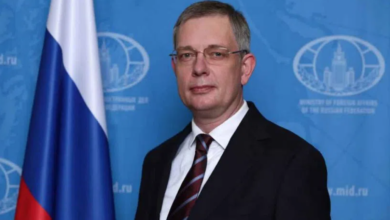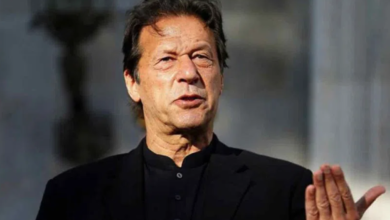Hindus, Hate and Hashtags: How Hindus Are On the Back Foot, Again

Britain isn’t exactly a state which is friendly to India. For 200 plus years, Britain pressed its heel on India’s neck, and a resentment of India choosing to chart its own post-Independence path conditioned the British policy toward India. As India grows ever more powerful, British mocking of it gets more shrill and ludicrous. This does not come out of nowhere though, and is set against centuries of European cogitation about Hindus. When Winston Churchill talked of Indians as “a beastly people with a beastly religion”, he was drawing on a crystallised common sense about Hindus among the British.
Under the guise of raising the Hinduphobia issue, the podcast — Hindus, hate and hashtags — presented by Vishva Samani, and aired on the BBC World Service in August 2022, continues the Western media and political campaign against the Modi government, which draws on this established common sense. In this, the BBC, an arm of the British state, has played a prominent role, even if it is just one component in a complex Western media and intelligentsia nexus. To my knowledge, the BBC has never presented anything positive of what the Modi government has done and, even when it pretends to, the coverage will carry some sting. If it isn’t credible that the Modi government only does things that ought to be disapproved of, then why does that message come through so consistently from the British state broadcaster?
The message from this podcast isn’t that there is a Hinduphobia problem, but that Hindus should distance themselves from the Modi government and its political organisation if they want to be listened to. The podcast stations a gay woman to articulate the experience of hatred she receives for her avowal of Hindu traditions. But why does the podcast foreground her as a gay woman? Why can’t the BBC present Hindu claims straightforwardly without confusing them with other identity claims? Maybe it taps into the idea that an LGBT Hindu cannot possibly be a Modi supporter (why not?), which is why listeners ought to take her claims seriously. Conversely, it gets across the message that Modi-supporting Hindus are not the type to be trusted, and the podcast even implies that the Modi government is responsible for generating Hinduphobia because it instigates religious violence, though it does that without evidence.
The podcast gives free air time to anti-Modi propagandists who do not get called out for lack of data to back up their unhinged comments (a typical BBC technique). Those Hindus claiming that there is a hate campaign against them are however taken to task because they have to substantiate their claims beyond reasonable doubt, and are grilled about suspicions of their own support for the Modi government, the implication being that that makes their claims untrustworthy. Why this asymmetrical treatment of the anti-Modi propagandists and those Hindus trying to make a case that Hindu hatred and persecution exists as a serious problem?
One plausible answer is that the propagandists speak against the background of a Western consensus against the Modi government and so don’t need to substantiate their claims. Their claims about Hinduphobia and its alleged role in “silencing dissent” (a favourite phrase of the anti-Modi brigade) don’t require backing up. They don’t need to make good their claims because the background already does that job and just needs to be tapped into. Hindus, meanwhile, are always on the back foot, having to prove their credibility against the terms set by those who think they are presumptively immoral.
A striking aspect of the podcast’s reception among Hindus is its welcome. It is as though the BBC has breached some major barrier merely by deigning to give air-time to claims of Hinduphobia. However, if the observations made here about the podcast are correct, then why are Hindus going about proclaiming that the podcast is some sort of milestone for them?
The writer is a Reader in Culture and Law at Queen Mary, University of London. Views expressed are personal.







